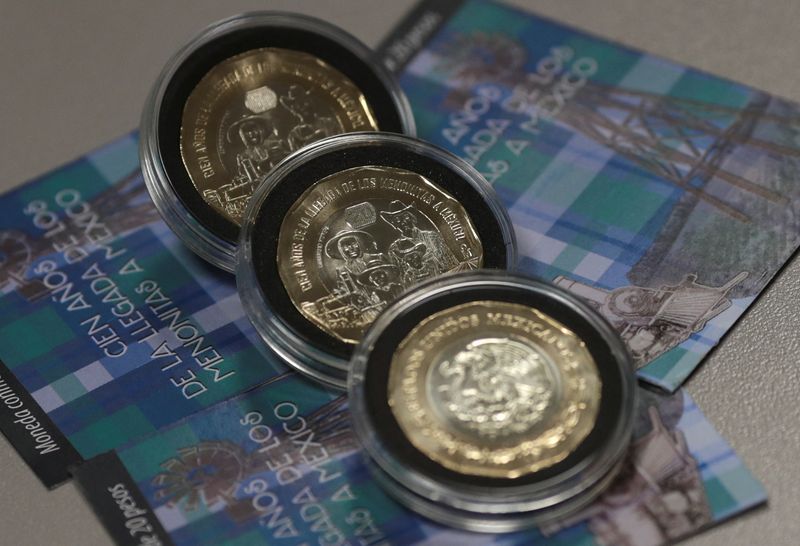By Gabriel Burin
BUENOS AIRES (Reuters) – Mexico’s peso is set to pare its advance of recent months but will keep trading at firm levels, helped by the central bank’s aggressive policy tightening to combat elevated inflation, a Reuters poll showed.
While the decline would give back part of the currency’s appreciation of almost 5% during 2022, the best performance in 5 years, it would still leave the peso near 20 per U.S. dollar, around which it has oscillated since 2017.
The unit strengthened as hawkish policymakers continued to ramp up rates to a record 10.5% with a 50 basis points move in December. Banxico, as the central bank is known, has hiked a cumulative 650 basis points since April 2021.
The peso is seen at 19.83 versus the U.S. dollar in a year’s time, sustaining a potential 3.5% loss from 19.16 on Monday, according to the median estimate of 19 foreign currency strategists polled Feb. 2-6.
“Given the pressures … from a tight labor market, nearshoring and un-anchored inflation expectations, there is not much room for Banxico to risk depreciation by decoupling from the Fed”, BofA analysts wrote in a report.
The peso is likely to get more support this week, with an expected 25 basis points increase in Mexico’s benchmark rate to 10.75%, due to persistent pressures that exacerbated inflation in January, a separate Reuters poll showed.
This would represent a margin of 600 basis points over the upper limit of U.S. Fed rates – a good trade opportunity for risk-tolerant investors. Year to date, the peso has risen 1.6% versus the greenback.
In Brazil, the real is expected to continue on a downward trend, shedding 1.7% in 12 months to 5.24 per U.S. dollar from 5.15 on Monday, the poll showed. Since the start of 2023, the currency is up 1%.
Brazilian markets have been caught in the crossfire of a growing dispute between the orthodox leadership of the central bank and a new government focused on social issues that is openly criticizing it for maintaining high interest rates.
On Monday, the real weakened following the latest comments of President Luiz Inacio Lula da Silva against the bank’s stringent policy. It is now expected to start easing in November rather than September, a survey showed.
(For other stories from the February Reuters foreign exchange poll:)
(Reporting and polling by Gabriel Burin in Buenos Aires; additional polling by Susobhan Sarkar and Prerana Bhat in BENGALURU, Editing by Kylie MacLellan)
